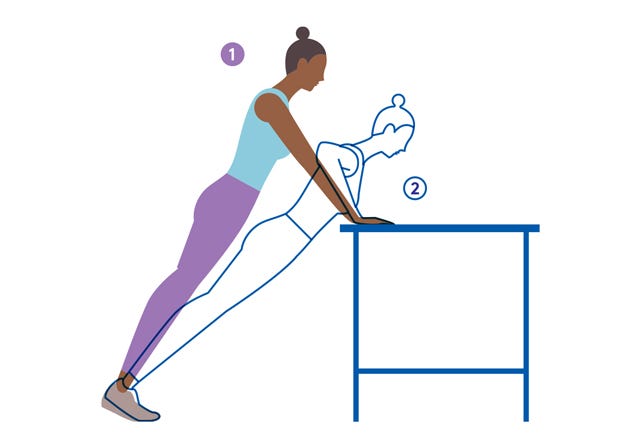Hormones are the body’s unsung heroes, playing a key role in everything from metabolism to mood regulation. But for women, fluctuations in hormone levels throughout the month, and across different life stages, can significantly impact mental health. One of the most common mental health struggles women face in relation to hormone changes is depression. Understanding this connection and knowing how to manage it can make a world of difference.
How Hormones Affect Depression
Hormones, particularly estrogen and progesterone, fluctuate in women’s bodies in response to different phases of their life and the menstrual cycle. These fluctuations can contribute to changes in mood, energy levels, and even the onset of depression. Let’s break it down:
1. The Menstrual Cycle:
The most obvious hormonal fluctuations occur during the menstrual cycle. For many women, the drop in estrogen and progesterone just before their period leads to symptoms of Premenstrual Syndrome (PMS), which can include irritability, fatigue, and sadness. For some, these feelings are more intense and are categorized as Premenstrual Dysphoric Disorder (PMDD), which can closely resemble clinical depression.
2. Pregnancy and Postpartum:
Pregnancy brings a surge in hormones, especially estrogen, and progesterone. After childbirth, hormone levels drop dramatically, which can lead to postpartum depression. This is a challenging condition that affects many new mothers, but the good news is that it’s treatable with therapy, support, and sometimes medication.
3. Perimenopause and Menopause:
As women enter their late 30s and early 40s, hormone levels begin to fluctuate in a phase called perimenopause. Estrogen levels decrease, and progesterone can become imbalanced, leading to symptoms such as mood swings, irritability, anxiety, and depression. Once menopause occurs, typically in the late 40s to early 50s, the body experiences a sharp decline in estrogen, which can also contribute to depressive symptoms.
4. Thyroid Imbalance:
Hormonal imbalances in the thyroid, which plays a key role in regulating metabolism, can also contribute to depressive symptoms. For women, thyroid disorders like hypothyroidism can cause fatigue, weight gain, and feelings of sadness or depression.
Why This Happens: The Science Behind It
Hormones like estrogen and progesterone directly impact neurotransmitters in the brain, such as serotonin, dopamine, and norepinephrine, which are responsible for regulating mood. Estrogen, for example, has a positive effect on serotonin production, which is often called the “feel-good” neurotransmitter. When estrogen levels drop, serotonin levels can fall as well, leading to feelings of sadness and irritability.
Additionally, fluctuations in progesterone can impact the GABA receptors in the brain, which help to regulate stress and anxiety. When GABA levels decrease, stress and anxiety can increase, contributing to depression.
How to Overcome Hormonal Depression
Understanding the link between hormones and depression is a first step, but it’s crucial to know how to manage the emotional rollercoaster that often comes with these changes. Here are some strategies for overcoming hormone-induced depression:
1. Hormone Therapy:
For women experiencing significant hormonal fluctuations, hormone replacement therapy (HRT) can be an effective treatment. This can help regulate hormone levels, reduce symptoms of depression, and improve overall mood. However, HRT may not be suitable for everyone, so it’s important to consult with a healthcare provider to discuss potential risks and benefits.
2. Lifestyle Modifications:
Making some key changes in daily habits can go a long way in supporting hormonal balance and mental health:
- Exercise: Regular physical activity, especially aerobic exercise, has been shown to boost mood and increase serotonin levels, helping to alleviate symptoms of depression.
- Nutrition: Eating a balanced diet rich in fruits, vegetables, healthy fats, and lean proteins can support hormone regulation and improve mental clarity. Foods like leafy greens, salmon, nuts, and seeds can help balance estrogen levels naturally.
- Sleep: Hormones and sleep are closely linked. Ensuring you get quality sleep each night can help stabilize hormone levels and improve mood.
3. Therapy and Counseling:
Hormonal changes can have a huge psychological impact. Therapy, particularly cognitive behavioral therapy (CBT), can help women manage depression symptoms by addressing negative thought patterns and developing coping strategies.
4. Stress Management:
Since stress can exacerbate hormonal imbalances, finding ways to relax and reduce daily stress is crucial. Practices like mindfulness meditation, deep breathing, yoga, and even journaling can be great tools to help manage stress levels.
5. Medication:
In some cases, antidepressants or anti-anxiety medications may be necessary to help stabilize mood. These can be particularly helpful when the hormonal fluctuations are severe and don’t respond to other forms of treatment. It’s important to work closely with a healthcare provider to find the right medication and dosage.
6. Support Networks:
Hormonal changes can feel isolating, especially when they lead to mood swings and depressive feelings. Building a solid support network of friends, family, or support groups can provide comfort and understanding. Having someone to talk to can make a big difference when you’re struggling.
Hormonal changes can have a profound impact on women’s mental health, and depression is one of the most common outcomes. Understanding the connection between female hormones and depression is key to managing these feelings effectively. By making lifestyle changes, seeking appropriate treatments, and reaching out for support, women can regain control over their mental health and overcome hormone-related depression.
If you’re feeling overwhelmed by the impact of hormonal changes, know that you’re not alone—and that with the right approach, you can manage your symptoms and improve your overall well-being. Always consult with a healthcare professional for personalized advice and treatment options that work best for you.




